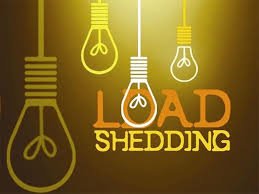The public should not simply accept the yearly periods of load shedding during the dry season but question the government on why Meghalaya is still unable to generate enough electricity to meet its needs, pastor turned politician Kyrsoibor Pyrthuh has told Highland Post.
“This has been the routine for the last 30 years – from the moment the dry season starts until June-July we face constant load shedding with no solution,” Pyrtuh said, adding that legislators, including those in the cabinet, who have been chosen by the people, remain silent on the issue.
As the ageing Umiam power project is not able to cater to the state’s growing needs for electricity, Pyrtuh wondered what has happened to the promises of the Leshka hydro project.
Meghalaya entirely depends on hydropower for its own electricity needs but is now having to buy power from elsewhere to plug the gap between supply and demand. Because of the difference in the price it charges consumers and that which it has to pay to purchase electricity, it is forced to inflict daily power cuts of between 8 to 10 hours.
“With all the resources the state has, do we really have to continue to suffer like this?” Pyrtuh asked, adding that electricity generation can be through so many other ways that are not harmful to the environment.
Heavy power cuts have hit the poor and lower middle class the hardest of all as they can ill afford backup batteries. Small business owners have also been shattered by the power cuts, which are some of the worst that the state has experienced in the last decade. However, Pyrtuh was not sympathetic to the big industrial units in places like Byrnihat. These, it turns out, are charged less than domestic consumers for the electricity they use and many a time they run large debts to the power company by not paying their bills.
Affected citizens need to make their voices heard more and not be willing to accept the power cuts and lack of effort from the government, he opined, while calling for experts to be used to arrive at a solution. He also called for there to be transparency in how the power utility selects suppliers of electricity when it has to buy power from elsewhere.
























